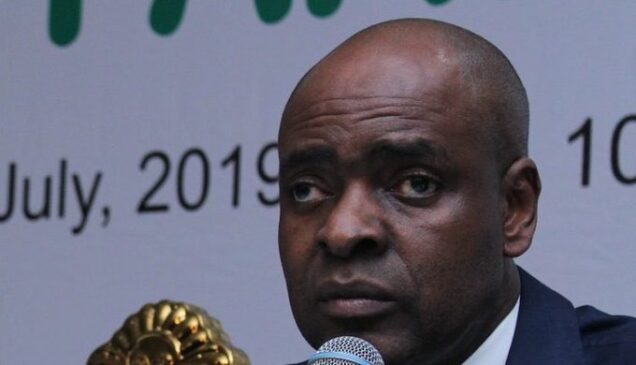We See Stronger Market Recovery if CBN Solves FX Illiquidity – Analysts
Analysts at Chapel Hill Denham Limited, a leading investment banking firm headquartered in Lagos, have said the firm envisages a stronger market recovery if the Central Bank of Nigeria addresses foreign exchange illiquidity.
Naira has plunged significantly despite two-time official devaluation, but limited foreign exchange inflow continues to pressure the Nigeria’s central bank intervention to keep the local currency stronger.
Apart from weak purchasing power of Naira, scarcity of the greenback continues to impact foreign investors’ sentiments, thus the wait on the sideline amidst declining inflow.
Already, there are backlogs of request that are yet to be fulfilled, though the CBN has indicated readiness to support foreign investors proper exits.
Analysts at Chapel Hill explained that the stock market rebound continues in the third quarter (Q3) of 2020, despite the bearish sentiments by most investors.
The Nigerian Stock Exchange (NSE) All-Share Index (ASI) recovered by 14.9% in the second quarter (Q2) 2020 amid lockdowns, post the sell-off of -20.6% in the first quarter (Q1) 2020, which was consistent with global market equities.
“We highlight that the stock market is still in the positive terrain in Q3-20 with +3.5% gain quarter-to-date (QTD) compare to 11.4% QTD for Brent Crude amid depressed yields on fixed income and money market securities”, Chapel Hill stated.
The firm said: “While we agree that the overall economy is weak and FX illiquidity is a challenge, we believe there are opportunities for investors to earn decent returns in the banking and telecoms sector”.
In its note, the firm explained that Banks and telecoms were major winners in Q2-20
“These two sectors have proved resilient, as depicted by the GDP picture with compelling growth outlook, in our opinion”, analysts explained.
Importantly, Chapel Hill stated that the two sectors are poised for interim dividend payments in Q3-20.
“For instance, we find it interesting that MTN Nigeria paid an interim dividend of N71.24 billion (higher by 18.6% year on year and a yield of 3.0%) to its shareholders the same day that the Nigerian Bureau of Statistics announced that the economy contracted by 6.1%”, the firm said.
Chapel Hill Denham said: “In all, we see a stronger market recovery on the cards, if the FX illiquidity is addressed by the CBN and crude oil prices trend higher, given Nigerian market’s correlation to crude oil.
Read Also: Parallel Market Rate Breaks Resistance as USD Exchange for ₦480
“If these two conditions materialise before the end of the fourth quarter (Q4) 2020, it is likely that we see up to an 18% re-rating of the market to around 29,710.56, the peak in 2020 (on 20 January 2020 when Brent crude was US$64.63pb)”, analysts said.
The current economic trend has shown that the banking and telecoms sectors are the winners in terms of growth and we believe the trend will be sustained in the short-to-medium term.
Explaining the firm’s view, analyst said despite the correlation between the NSE ASI and oil prices, the NSE ASI has performed better than crude oil with a year to date contraction of 5.8% as against 30.4% for Brent crude.
“We highlight that these seven stocks GTB, Zenith, UBA, Stanbic, MTNN, and Airtel; except Access) have started on a positive note in Q3-20.
“Accordingly, we believe investors that missed the Q2-20 rebound in the stocks should take a second look at the opportunities in the stocks”, analysts stated.
Chapel Hill stated that with the exception of Access and Airtel, the stocks recorded stronger recoveries in Q2-20 compare to the NSE ASI.
On a Q3-to-date basis, Airtel has the best return of 15.6%, followed by GTB (+14.3%) and Stanbic (+14.0%).
“While the broad market weakness in Q1-20 puts the banks at red year to date, the telecoms have been resilient with positive returns.
MTNN has gained 12.2%, while Airtel did 27.2% year to date.
Meanwhile, analysts stated that the strong growth in financial institutions reflects the sustained positive knock-on impact of the CBN’s loan-to-deposit ratio policy, which has resulted in a 14.5% year on year expansion in credit to the private sector as at June 2020.
The telecoms sector was perhaps the biggest winner of the pandemic restrictions, as industry voice and data subscribers expanded by 12.8% and 17.2% respectively.
We See Stronger Market Recovery if CBN Solves FX Illiquidity – Analysts













